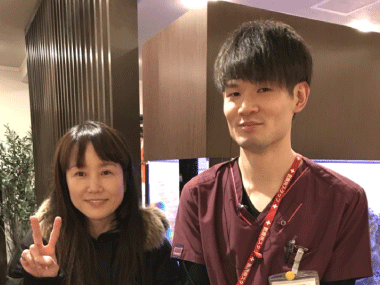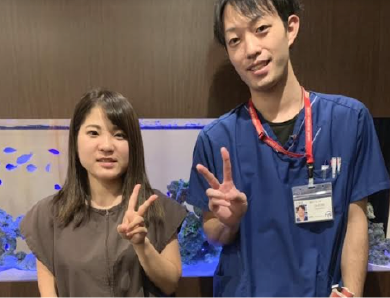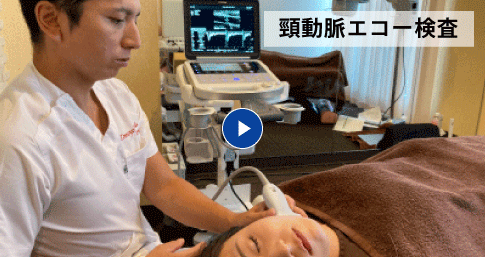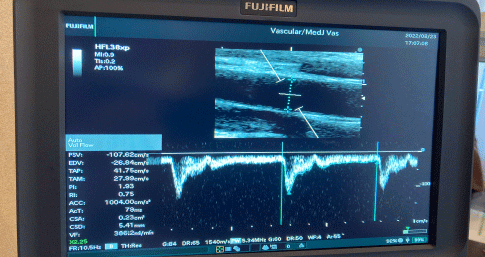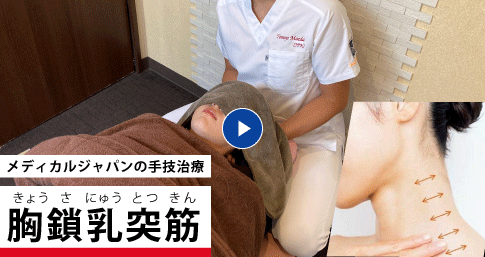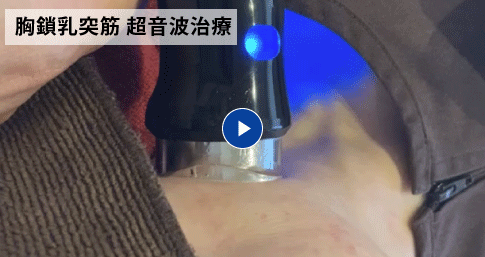Dizziness
Causes and Types of Dizziness
Dizziness can be classified into types such as vertigo, lightheadedness, disequilibrium, and syncopal attacks.
Especially when sudden and severe dizziness, headache, and vomiting occur simultaneously, there could be abnormalities in the brain, so it’s important to seek medical examination promptly.
However, most dizziness is caused by issues with the inner ear, specifically the “semicircular canals” and the “otolithic organs,” which are responsible for balance. One of the most common causes is benign paroxysmal positional vertigo (BPPV), which is often triggered by stress or lifestyle factors. It is also more common in women, possibly due to a decrease in female hormones, making the otoconia (small crystals that help with balance) more likely to detach.
*If symptoms persist, it’s advisable to consult a specialized medical institution.

Additionally, in cases of dizziness accompanied by tinnitus or hearing loss, Ménière’s disease, which is caused by the accumulation of lymph fluid in the inner ear, is a well-known condition. It is most common in individuals in their 30s to 50s and is strongly influenced by lifestyle habits and stress.
Classification (Central vs Peripheral)
Dizziness can have various causes. Here, we will explain “central dizziness,” which is caused by problems with blood flow in the brain, and “peripheral dizziness,” which is caused by abnormalities in the inner ear.
Central Dizziness
Central dizziness is caused by issues in the brainstem or cerebellum. In this case, dizziness may be accompanied by the following symptoms:
・Difficulty moving the tongue
・Feeling unsteady even when eyes are open
・Dizziness persists even when the head position is changed
Peripheral Dizziness
Peripheral dizziness is caused by problems with the inner ear. The following symptoms are typically seen:
・Severe, rotational dizziness
・Dizziness accompanied by ear symptoms such as hearing loss
・Dizziness intensity changes when the head position is altered
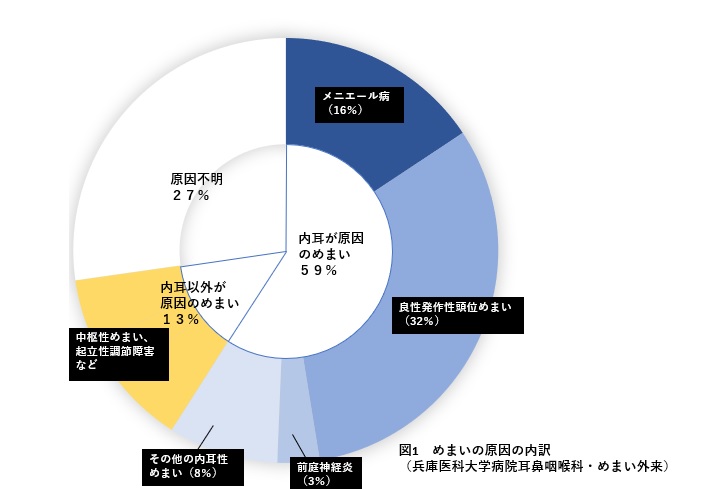
Medical Japan’s Unique Intervention for Improving Brain Blood Flow Related to Dizziness

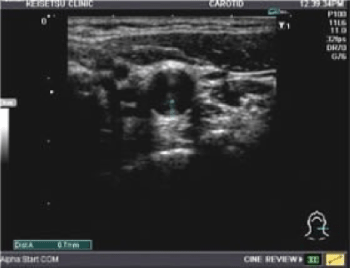
When carotid artery constriction occurs, the smooth flow of blood to the cerebrum and auditory organs is disrupted.
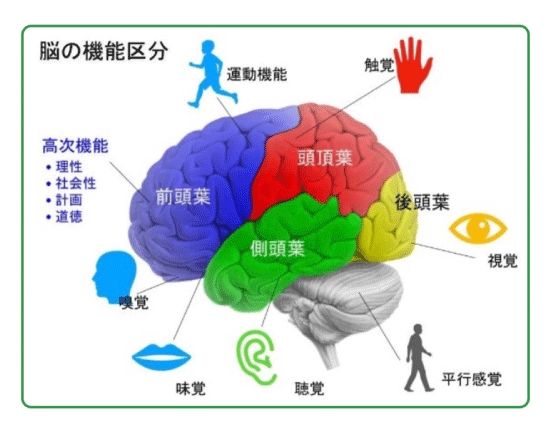
The brain is subdivided into different regions, each responsible for distinct functions. For example, the cerebral cortex is further divided into 52 areas based on cellular structure differences. This functional localization exists throughout the central nervous system, and in the spinal cord, sensory and motor functions are localized to specific regions for the hands and feet. When oxygen supply to the brain decreases, nutrients cannot reach the cells effectively, leading to functional decline.
At Medical Japan, we use programs that incorporate ultrasound, echo, manual therapy, and rehabilitation exercises to address dizziness and improve patient outcomes.
2D Echo (Ultrasound Examination) for Diagnosis
We perform tests using 2D echo (ultrasound examination). 2D echo is excellent for observing soft tissues like muscles, tendons, and ligaments. When pain is caused by factors that cannot be seen in X-rays or CT scans, such as trigger points, muscle fibers, ligaments, and tendons, 2D echo (ultrasound examination) is highly effective in identifying the cause.
Medical Japan Western Medicine Approach
When it comes to stress and lifestyle habits, it can be difficult to understand what exactly is causing problems and where to start making improvements. Many people struggle with figuring out what to change first.
Autonomic Nervous System Diagnosis
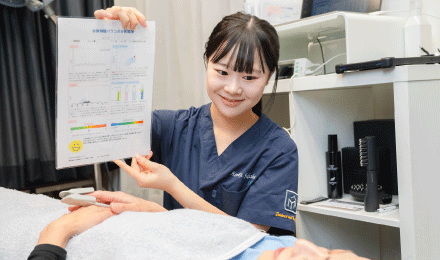
At our clinic, we perform an autonomic nervous system diagnosis to assess the current activity levels of your autonomic nervous system. Based on the results, we evaluate factors such as whether stress is accumulating, its characteristics, and other lifestyle factors such as exercise and diet. We provide treatments tailored to each individual and offer advice on prevention and risk management, not just symptom improvement.
Sternocleidomastoid Approach Manual Therapy
The neck is a complex area where muscles and nerves intertwine, and large blood vessels that supply nutrients to the brain pass through. By practicing breathing techniques and correcting posture, we aim to improve flexibility and expand the range of motion. To achieve early improvement, we provide personalized counseling, customized treatments, and made-to-order therapies.
Sternocleidomastoid Approach Ultrasound Therapy
We apply ultrasound to the target area using either a non-thermal or thermal effect.
Ultrasound → Increases blood flow in the spinal arteries and arterial plexus through deep heat.
We also use a combination physiotherapy device (Astron) that utilizes high-frequency waves to relieve muscle tension and suppress pain transmission.
[Self-care] Sternocleidomastoid Care at Home
When performing self-care at home, it is important to follow these precautions:
※ Effect Changes: If pain increases or new symptoms appear, stop immediately and consult a healthcare professional.
※ Take Your Time: It’s important to perform the exercises slowly. Rushing can prevent muscles from relaxing properly and may hinder the effectiveness.
※ Appropriate Intensity: Care that is too intense can damage muscles. If you experience pain, reduce the intensity or stop the treatment.
Rehabilitation Exercise + Breathing Techniques

Balance is not only affected by muscle and bone issues but also by tension in the body, which can shallow breathing, lower metabolism, and lead to various health complaints and chronic diseases. We provide thorough guidance on easy exercises you can do at home.
Before → After
Rehabilitation Exercise + Breathing Techniques
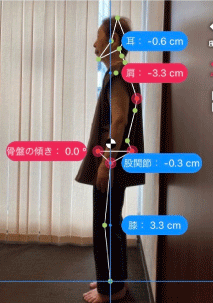
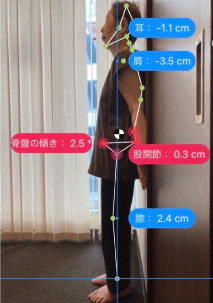
To live a healthy and fulfilling life both physically and mentally, I am dedicated to providing expert support. If you are experiencing these symptoms, please feel free to consult with us.

Medical Japan’s Traditional Medicine Approach (When No Underlying Disease is Present)
Improvement of inner ear and brain circulation (focusing on the vertebral artery and internal/external carotid artery circulation)
Treatment is applied to acupoints and reaction points around the ear, among other areas.
[Example Prescription]
Around the ear: Wa-Ryo, Kan-Kotsu, Atama-Kyo-In, Ei-Fu
Back of the neck: Fuku-Chi
Shoulder and back: Ken-I
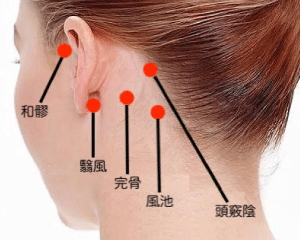
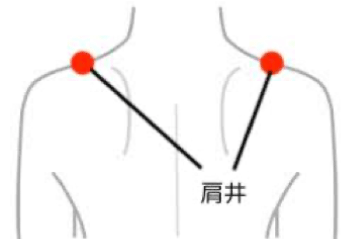
From a traditional medicine perspective, dizziness can occur due to the following causes:
① Increased liver yang due to anger and stress
② Phlegm accumulation due to irregular diet and humidity
③ Deficiency of both Qi and Blood due to weak spleen and stomach or chronic conditions, excessive bleeding, etc.
④ Kidney essence deficiency due to aging or overindulgence
Endorsement from Physicians
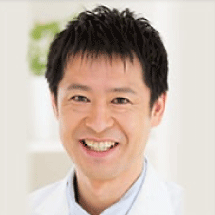

Career and Achievements
Certified physician by the Japanese Society of Internal Medicine, Specialist in Circulatory Medicine, Member of the Japanese Society of Hypertension, Certified Instructor of the Japan Diabetes Society, Certified Occupational Physician by the Japan Medical Association, Certified Specialist in Travel Medicine, Member of the Japanese Society of Allergology, Certified Heart Rehabilitation Instructor
Hello, I am Ken Ikeda from Tachikawa Clinic.
I have been involved in the treatment and research of lifestyle-related diseases such as hypertension, hyperlipidemia, and diabetes at university hospitals and other medical institutions.
In particular, my life’s work has been heart rehabilitation for patients after treatment for heart diseases such as myocardial infarction, angina, heart failure, and aortic diseases.
Restoring overall bodily function is essential for improving quality of life, and it is also the kind of healthcare we strive for.
While working on rehabilitation, I have been focusing not only on improving current conditions but also on preventing future diseases.
The treatment approach of Medical Japan aligns with the healthcare approach that we, as medical professionals, aspire to.
“To live a high-quality life, health is irreplaceable.”
Health involves a balanced approach to nutrition, exercise, rest, and treatment, and it is important to maintain a healthy lifestyle to prevent illness.
Medical Japan’s commitment to practical treatments, using qualified professionals, offering massage and acupuncture, and focusing on individualized patient care, makes them a valuable partner in supporting community health.
Additionally, the pressure training techniques based on evidence are promising for future treatment outcomes. I look forward to Medical Japan’s future efforts in this area.
I believe that Medical Japan is a company that can provide excellent health support for the local community and would recommend them for their partnership.
*This is a personal opinion
Tachikawa Clinic
Located 2 minutes from Tachikawa Station North Exit, open on Sundays, offering internal medicine, circulatory, diabetes, digestive, allergy, lifestyle disease, vaccination, travel medicine, smoking cessation treatment, health checkups, and pediatric care.
Website: https://www.tachikawa-cl.com/
Voices of Joy from Our Patients
